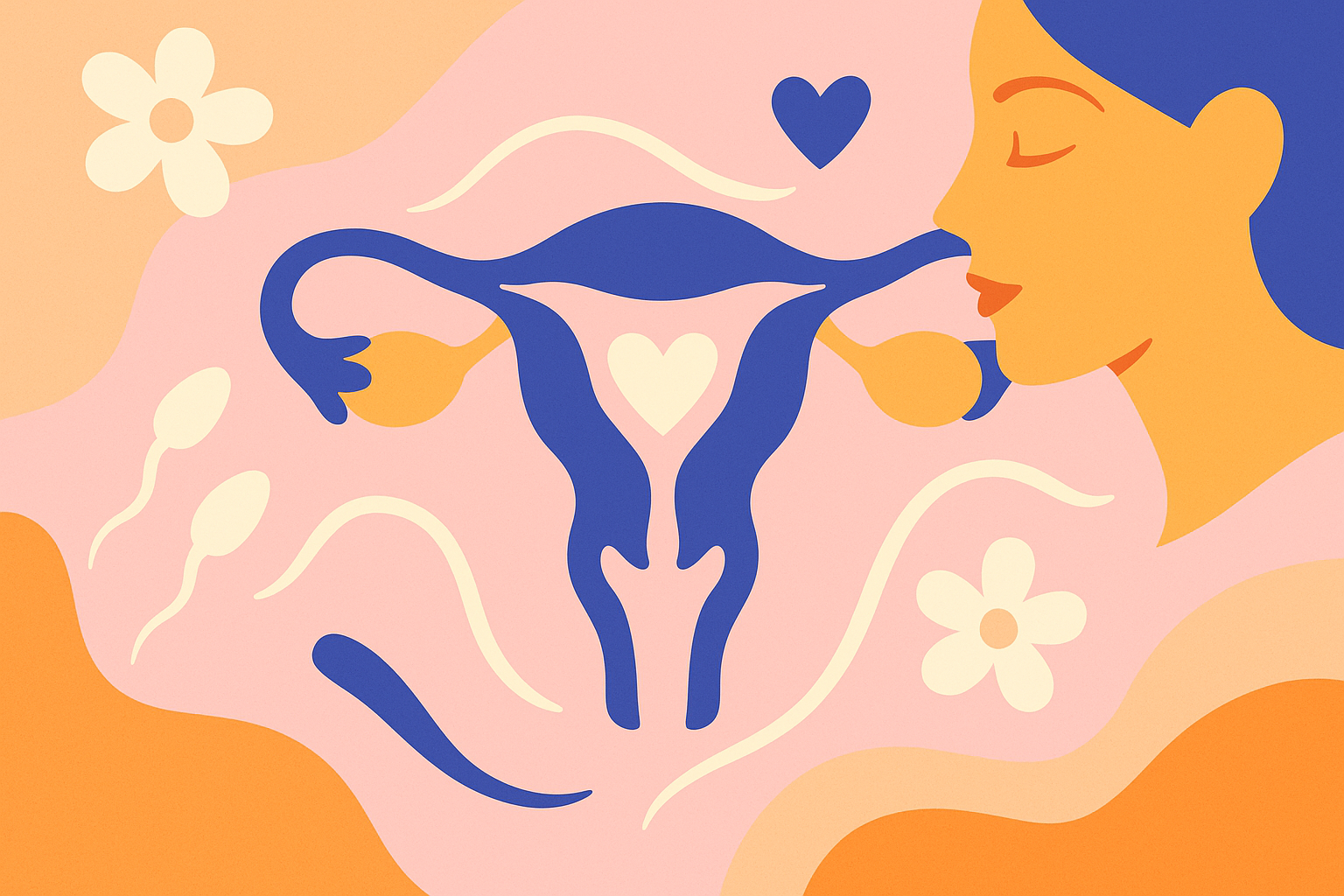Is It Endometriosis or Just a Bad Period?

A Gentle Note Before We Begin
This blog is for informational purposes only and is not a substitute for professional medical advice. If any of the symptoms sound familiar, we encourage you to speak with a GP or a gynaecologist who specialises in reproductive health.
What is Endometriosis, Really?
Endometriosis is more than a heavy period — it's a chronic condition where tissue similar to the uterine lining grows in places it shouldn't: around the ovaries, fallopian tubes, bladder, bowel, or pelvic cavity.
These growths don’t shed during your period. Instead, they build up, break down, and bleed inside your body — causing inflammation, pain, and sometimes scar tissue.
→ For a deeper understanding of ovulation and how the uterus works, read our guide: How Ovulation Actually Works (And Why Timing Matters)
Common Symptoms of Endometriosis
Endo is tricky — it shows up differently for different people. But here are some signs that it might not be “just a bad period”:
- Intense period pain that interferes with daily life
- Painful sex
- Heavy or irregular periods
- Digestive issues (bloating, constipation, nausea)
- Lower back pain
- Fatigue
- Pain when peeing or passing stools (especially during your period)
- Trouble conceiving

Why It’s So Often Missed
Many people with endo are told their symptoms are "normal." One reason? Cramps and fatigue have been normalised as just part of being a woman.
But when those symptoms become life-limiting, something’s not right.
Unfortunately, it takes an average of 7–10 years to get an endometriosis diagnosis in the UK. That’s a long time to feel dismissed or confused.
NHS guide to endometriosis
Endometriosis UK support and resources
How Endometriosis Affects Fertility
Not everyone with endometriosis struggles to conceive — but many do. Here's why:
- Scar tissue can block the fallopian tubes.
- Inflammation can interfere with ovulation or implantation.
- Hormonal imbalances may affect cycle regularity, making it harder to pinpoint ovulation or early signs of pregnancy — read our post on Early hCG Signs & Testing Timing to learn more.
That said, pregnancy is still possible. Many people with endometriosis conceive naturally or with the help of treatments like IUI, IVF, or laparoscopic surgery to remove lesions.
What You Can Do if You Suspect Endo
If something feels off — trust your gut. You know your body better than anyone.
Here are some helpful first steps:
- Track your symptoms using a period app or fertility tracker
- Write everything down, including pain severity, cycle length, and unusual changes
- Speak up during GP visits — don’t be afraid to advocate for further investigation
- Ask about a referral to a gynaecologist or reproductive endocrinologist
- Consider a laparoscopy, which is currently the only way to confirm endo
Check out this Fertility Tracker
NHS referral rights – Know your patient options
You’re Not Alone: A Shared Experience
One member of our Maia community told us that for years, she thought her heavy periods and exhaustion were just part of life. It wasn’t until she began trying to conceive and started tracking her symptoms that she learned she likely had endometriosis.
After finally getting diagnosed, she felt a strange mix of relief and grief — but also empowerment. With treatment, she was able to understand her cycle better and feel in control again.
Small Shifts That Can Help
- Use a hot water bottle during cramps
- Try gentle yoga for pelvic tension
- Explore an anti-inflammatory diet (rich in omega-3s, leafy greens, and low in dairy/sugar)
- Look into acupuncture or pelvic physiotherapy
- Be kind to yourself — this is not in your head, and you are not weak
For more ways to care for your body and boost fertility naturally, explore our guide on 9 Lifestyle Habits That Support Fertility.

TTC with Endometriosis: Tips That Can Support You
- Track ovulation carefully — LH strips, BBT charts, and cervical mucus monitoring can help identify your fertile window more accurately.
- Consider insemination timing — our guide on the Best Time to Inseminate for Conception explains how to make the most of each cycle.
- Speak with a fertility specialist early — especially if you’re over 35 or have been trying for 6–12 months
- Join support groups — it helps to talk to others who get it
Making small, supportive choices now — from learning about your cycle to speaking up for your needs — can help you feel more in control, more informed, and more empowered as you move forward on your TTC journey.
Final Thoughts from Maia Baby
Endometriosis doesn’t define you — but acknowledging it can be the first step toward feeling better, more informed, and more empowered. Whether you’re trying to conceive now or simply want to feel seen, we’re here for you.
📚 Keep reading:
💌 Want more support?
Download our Free TTC Toolkit or Join our Fertility Support Email List






